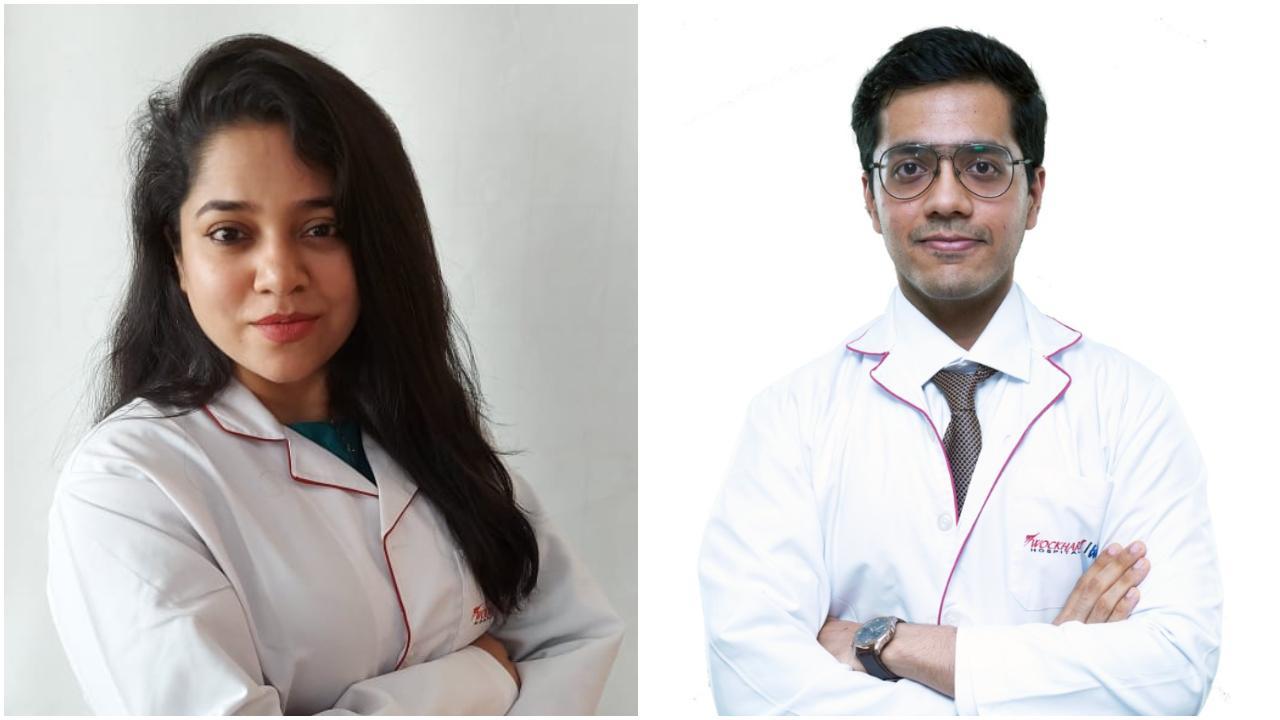
A 26-year-old woman with a hemoglobin level of just 2 (g/dL), battling catastrophic APLA syndrome during her eighth month of pregnancy, has successfully delivered a healthy preterm baby in Mira Road, after a life-saving multidisciplinary intervention.
In a remarkable achievement, a team at Wockhardt Hospitals in Mira Road, led by Dr Rajashri Tayshete Bhasale, consultant obstetrics and gynaecologist and laparoscopic surgeon, consisting of nephrologist Dr Puneet Bhuwania, hematologist Dr. Muralidaran C. successfully treated the pregnant woman who arrived in critical condition with a hemoglobin level of 2 (g/dL) and a rare diagnosis of catastrophic antiphospholipid antibody syndrome (APLA). The woman delivered a healthy preterm baby weighing 1.2 kg following an emergency cesarean section and an intensive medical intervention, including plasmapheresis therapy, multiple blood transfusions, and steroid treatments to improve the baby’s lung maturity.
Isha (name changed), a resident of Palghar, multigravida (in her second pregnancy) experienced low hemoglobin of 4 (g/dL) in her eight months of pregnancy in November 2024. The patient’s hemoglobin dropped to 2 (g/dL) by the time she reached the hospital in Mira Road. Fortunately, the mother and the baby are safe due to the timely intervention by the skilled team of doctors.
Dr Rajashri said, “This was one of the most challenging and unique cases. The patient arrived with severe anemia with hemoglobin of 2, pulmonary edema, and disseminated intravascular coagulation (DIC) which means her blood thinning power had been lost as this was confirmed via a D-dimer, her USG reports were normal. However, the baby’s health started deteriorating. First, we suspected abruption after extensive blood product transfusions, we stabilized enough for surgery while taking care of failure and Pulmonary edema. Emergency LSCS done after stabilization 1.2 kg baby was delivered, but there were no signs of Abruption. Further evaluation with the team including a Haematologist, diagnosis of Catastrophic APLA was made. Catastrophic APLA syndrome was been detected. The condition, seen in approximately 1 in 2 to 5 lakh individuals, posed severe risks to both mother and baby. This rare immunological condition caused her body to destroy hemoglobin, necessitating plasmapheresis therapy which is a type of dialysis procedure to remove harmful proteins.”
She added, “The team’s collective effort and timely intervention saved both mother and baby. Thankfully, we could stabilize her and deliver a healthy baby weighing 1.2 kgs despite the odds.”
Dr. Puneet Bhuwania highlighted, “The successful use of plasma therapy (type of dialysis) in such a critical case highlights the importance of rapid diagnosis and advanced therapies in saving lives. Catastrophic APLA syndrome is a rare, life-threatening condition, and this case showcases how a holistic approach can achieve remarkable outcomes. The patient’s history of unexplained anemia two years ago likely points to an earlier undiagnosed episode.”
The patient and her baby have since been discharged, while the baby received three weeks of preterm care in the NICU.
“I am thankful to Dr Rajashri and her team as they provided us with timely diagnosis and treatment. When I was admitted, I was so weak that I thought I wouldn’t survive, But the team at Wockhardt Hospitals, Mira Road didn’t give up on me. They explained everything clearly and treated me with care and compassion. My baby and I are alive today because of them, and we are forever grateful,” concluded Isha (name changed).
